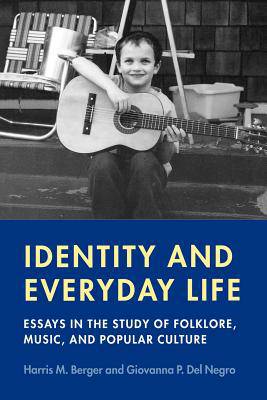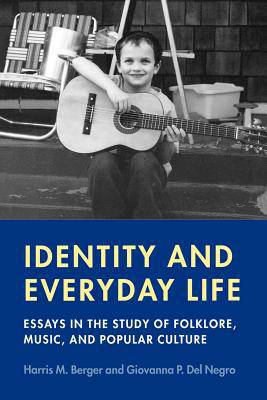
- Retrait gratuit dans votre magasin Club
- 7.000.000 titres dans notre catalogue
- Payer en toute sécurité
- Toujours un magasin près de chez vous
- Retrait gratuit dans votre magasin Club
- 7.000.0000 titres dans notre catalogue
- Payer en toute sécurité
- Toujours un magasin près de chez vous
Identity and Everyday Life
Essays in the Study of Folklore, Music and Popular Culture
Harris M Berger, Giovanna P Del NegroDescription
The notion of "everyday life" is ubiquitous in the contemporary intellectual scene. While scholars frequently use this concept to signal a romantic return to the "common people," Berger and Del Negro are among the first to subject the term to theoretical scrutiny. This book explores how everyday life has been used in three intellectual traditions (American folklore, British cultural studies and French everyday life theory) and suggests a program for revitalizing anti-elitist approaches to culture.
The book draws on studies of performance from around the globe, including the authors' work on heavy metal in the U.S. and the Italian passeggiata (ritual promenade), to explore the term "identity." Moving beyond truisms that depict performance as a medium for the loss of self or folklore as means of expressing identity, the authors explore the interplay of culture and agency in performance to illuminate the complex dynamics of reflexivity, identity and self. This book will speak to anyone interested in power and aesthetics in performance.
Spécifications
Parties prenantes
- Auteur(s) :
- Editeur:
Contenu
- Nombre de pages :
- 212
- Langue:
- Anglais
- Collection :
Caractéristiques
- EAN:
- 9780819566874
- Date de parution :
- 29-04-04
- Format:
- Livre broché
- Format numérique:
- Trade paperback (VS)
- Dimensions :
- 160 mm x 228 mm
- Poids :
- 312 g

Les avis
Nous publions uniquement les avis qui respectent les conditions requises. Consultez nos conditions pour les avis.






